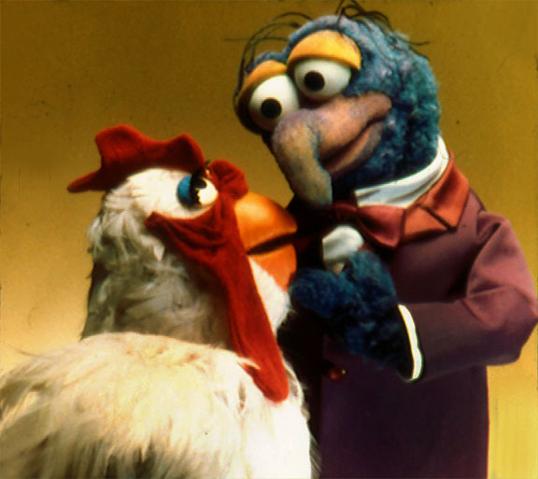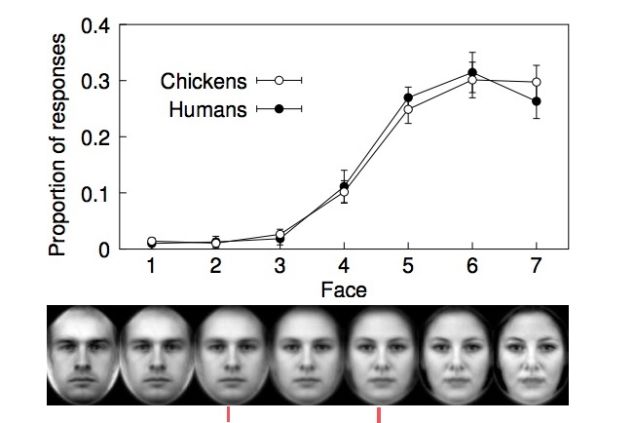Today In Unattainable Beauty Standards: Do Chickens Think I’m Pretty?
I'd settle for "cute in the right light," chickens.

Back in 2002, a group of scientists decided they wanted to usher in the new millennium by cracking one of civilization’s greatest mysteries: what do chickens think of our big, beak-less human faces?
To determine if chickens subject people to ruthless, shallow scrutiny, a team of scientists from Stockholm University recruited elite chicken test subjects used in previous studies and trained them to peck at the image of a human face in order to receive food. On the graph below, you can see how the researchers kept track of the literal pecking order perceived in the study.
The face in the middle was made by “averaging the […] averages” of female and male faces. The faces extending outwards from the center were designed to exhibit increasingly “male” or “female” features the farther away they were on the graph from the “average” option (rampant use of quotation marks=reservations with the “average” label and traditional gender binaries. I don’t come into your coop and categorize you, chickens).
At this part in the research, the scientists then brought in a team of humans to observe the faces and pick out the ones they would most like to date. The study, entitled Chickens Prefer Beautiful Humans, breaks down the scientist’s findings:
We trained chickens to react to the average human female face, but not to an average male face (or vice versa). In a subsequent test, the animals showed preferences for faces consistent with human sexual preferences (obtained from university students). This suggests that human preferences arise from general properties of nervous systems, rather than from face-specific adaptations.
Unsurprisingly, in the years since the study has been published, people have taken exception to the methods used in Chickens Prefer (that actually sounds like an excellent lifestyle magazine). Chickens Prefer Extrapolated Examples nicely summarizes some of the experiment’s flaws:
So both chickens and humans prefer the same faces, doesn’t that mean face preference is mostly genetic? Thing is, there’s a much simpler explanation: the chickens have been taught prefer A to B, which as a side effect teaches them to prefer a linear extrapolation of A away from B. I would expect this to hold for most As and Bs, and there’s nothing special about male or female faces.
If you want to test how much of face preference is shared with chickens, you need to design your experiment so you’re not just testing the power of chickens to extrapolate.
Research into the influence of biological and social imperatives on beauty standards is valuable, but a study would need to be more nuanced before we should give credence to the idea that chickens (or humans) have one set definition of beauty.
(via io9)
- Tyra Banks explains the beauty standards of the future
- Scientists have discovered a new state of matter in chickens’ eyes
- Somebody (sort of) invented a virtual reality headset for chickens
Are you following The Mary Sue on Twitter, Facebook, Tumblr, Instagram, & Google +?
Have a tip we should know? [email protected]
